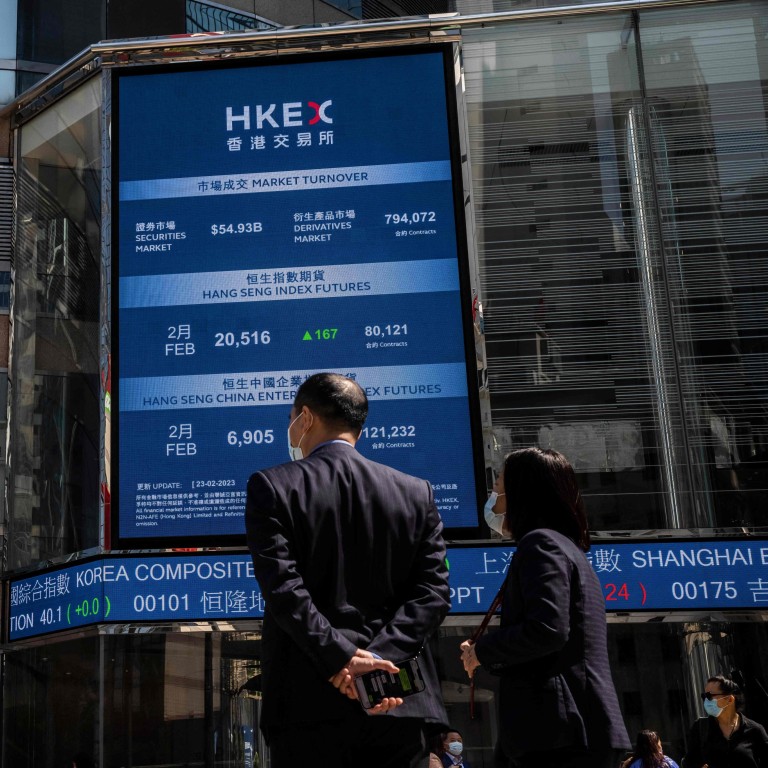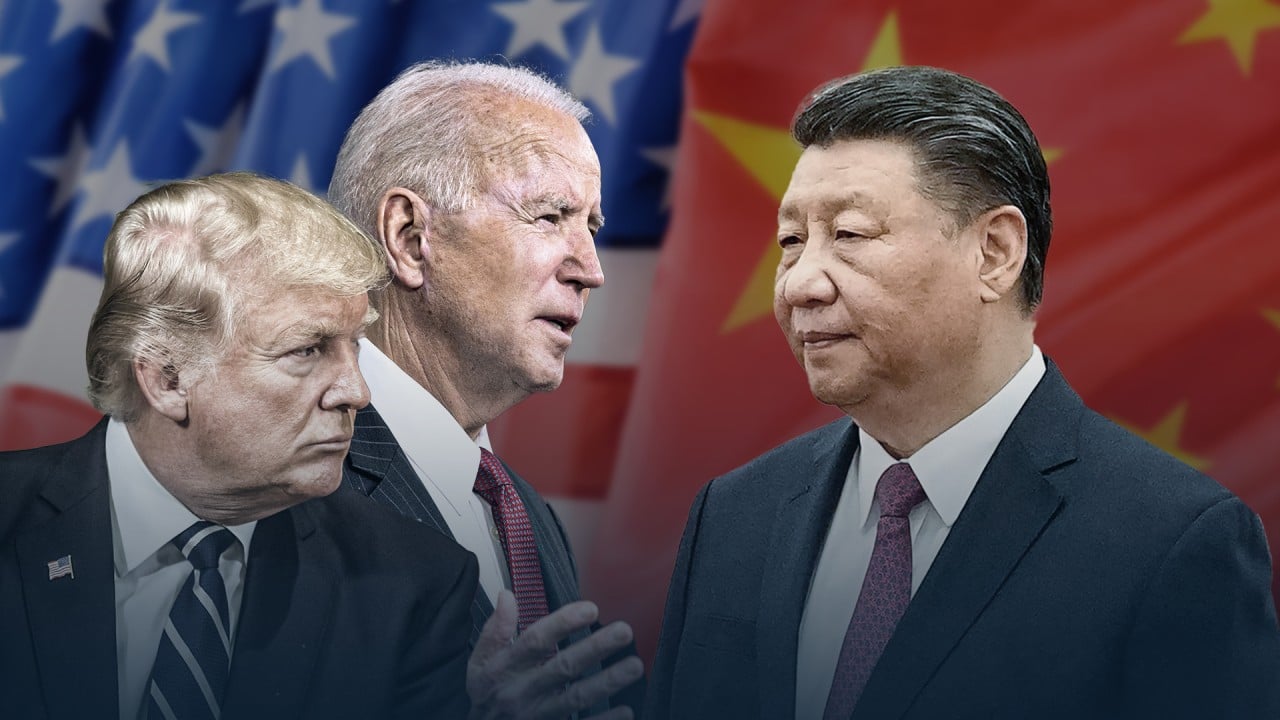
Hong Kong stocks log biggest gain in 3 months as Tencent, Alibaba, Longfor surge on stimulus bets while BYD gains on record EV sales
- All but three of 76 Hang Seng Index members gained in Friday’s rally as market moved further away from bear territory
- Goldman lowered targets on Chinese stocks; Beijing should consider a targeted stimulus to revive property sales, consumer spending, US investment bank says
The Hang Seng Index soared 4 per cent to 18,949.94 at the close of Friday trading, the most since March 1, with all but three of its 76 members posting gains. The Tech Index strengthened 5.3 per cent, also the most in about three months. The Shanghai Composite Index added 0.8 per cent.
The city’s main index closed the week out with a 1 per cent gain, ending a three-week losing streak, while the Tech Index halted an eight-week slump.
Tencent jumped 6 per cent to HK$334.20 to lead the rally while Alibaba Group surged 6.7 per cent to HK$82.50 and Baidu gained 7.3 per cent to HK$130.50. Developer Longfor soared 17.2 per cent to HK$17. BYD added 4.5 per cent to HK$245 after electric-vehicle sales doubled in May. Peers Nio, Li Auto and Xpeng rose by 3.8 to 7.9 per cent.
“The market is now betting on policy easing” as China’s post-Covid recovery continues to lose steam, Zhang Chen, an analyst at Northeast Securities said in a note to clients. The Politburo meeting in July might change the policy tone in favour of the market, he added.
Today’s advance lifted the benchmark index further away from bear-market territory. The barometer slipped earlier this week, taking the drop beyond 20 per cent from its January 27 peak into a technical bear market, as China’s economic recovery faltered amid a manufacturing slump.
Goldman cuts China stock targets again as recovery falters, funds go bearish
Strategists at Goldman Sachs said a more targeted stimulus to revive property sales and consumption in mainland China is needed. The firm also predicted the Fed will refrain from raising its key rate at this month’s policy meeting, saying successive increases since the lift-off in March 2022 would be restrictive enough to tame inflation.
“This is a particularly uncomfortable time to be overweight on mainland China,” Herald van der Linde, head of Asian equity strategy at HSBC, said in a report on Friday. Still, investors should not lose sight of the positives: earnings have held up, the US dollar is set to weaken, valuations are low, and geopolitical tensions may ease, he added.
Apart from stimulus speculation, Friday’s rally was mostly a technical rebound, said Willer Chen, an analyst at Forsyth Barr Asia. The Hang Seng Index’s 14-day relative strength index fell below 30 on Wednesday and Thursday, suggesting the sell-off was overdone.
The last time the market entered similar oversold territory was in late October last year, local stocks surged as much as 55 per cent in the subsequent three months on the back of China’s reopening optimism.
Mainland investors, however, remained cautious. They sold HK$2.4 billion (US$310 million) worth of local stocks on Friday, adding to the selloff this week totalling HK$6.9 billion, according to Stock Connect data. They were net buyers of HK$22.4 billion in May.
Two stocks debuted on Friday. Wuxi Xinhongye Wire & Cable dropped 2.2 per cent to 65.79 yuan in Shenzhen, while Hunan Aerospace Huanyu Communication Technology surged 55 per cent to 33.99 yuan in Shanghai.
Major Asian markets advanced on Friday. Japan’s Nikkei 225 and South Korea’s Kospi Index gained 1.5 and 1.3 per cent, respectively, while Australia’s S&P/ASX 200 added 0.5 per cent.


